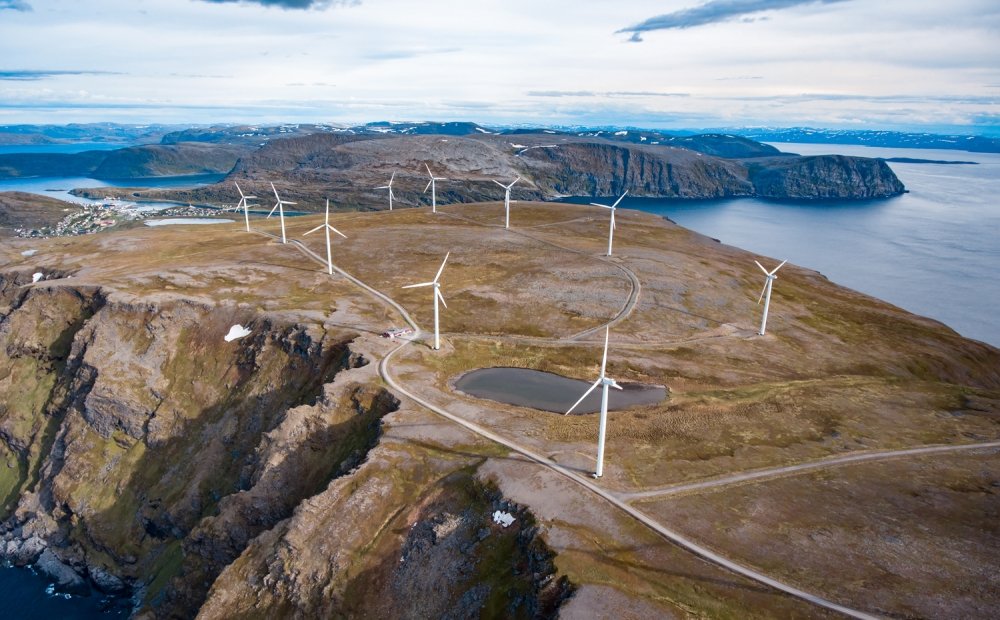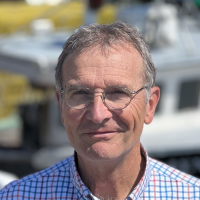Ground Truth Briefing | Energy Innovation in Remote Arctic Communities

Communities across the Canadian and the U.S. Arctic are diversifying their energy sources with cleaner, lower-cost, renewable options. In Canada, the government has pledged $220 million to bring renewable energy to remote and Arctic communities. In Alaska, 70 of some 200 remote communities are augmenting their power grids with bio-mass, geothermal, hydro, wind, solar, and wave energy.
The Wilson Center's Canada Institute and Polar Initiative hosted a telephone briefing to spotlight the energy approaches of these remote Arctic communities and how innovations are contributing to economic development and community resilience.
Selected Quotes
Lynne Platt
- “Arctic communities are increasingly finding that reliance on fossil fuels creates economic, environmental and social pressures. Now, for some communities, high energy costs are siphoning their resources away from other needs and for others it’s a matter of impacts to the community’s health, environment and traditional ways of life.”
Grant Sullivan
- “Climate change is very apparent in my hometown, for the past 20 years, we’re looking at about a 15° C change in temperature… while we don’t produce a lot of green-house emissions we still produce a lot per capita so it was pretty clear to my organization that we needed to take significant action to do our part and reduce our overall consumption.”
- “I wanted to see what the real cost of energy production was in the north. Working with the support of the Indigenous Northern Affairs Canada, we pulled together a report looking at the cost of diesel generation. We looked at current costs, costs arising from the gas emissions and external social impacts from relying on diesel… from this report we can now make some objective decisions of how we want to proceed.”
Dr. Martha Lenio
- “Diesel electricity is also extremely expensive, the price of electricity in Iqaluit, for example, is 57 cents per kilowatt hour. In Kugaaruk, which is more remote, that increases to $1.12 per kilowatt hour. For comparison, here in Ontario, our average cost of electricity is about 12 cents per kilowatt hour. So in some locations in Nunavut, electricity is 10 times more expensive than it is for us in the South.”
- “One of the major legislative changes that is needed for energy innovation is to allow independent power producers to be able to connect to the local electrical grids and be able to fit solar or wind energy onto the grid.”
- “Anytime fuels are being transported or distributed [to remote communities] there’s always a risk of diesel spills which can harm wildlife and impact food and water security, it can also compromise the permafrost integrity… sites in town that have been contaminated by diesel spills can’t be built on and it requires expensive remediation.”
John Ferland
- “Globally there are more than 2 billion people who have limited or no access to electricity and some 700 hundred million who pay high costs for electricity because of their community’s reliance on diesel-powered microgrids and we call these island of communities because whether you’re surrounded by land or water you have no connection to a traditional utility grid or fuel pipelines.”
- “The idea of replacing diesel, I think, in most places that’s the goal and it doesn’t happen in one fell swoop and speaking technically there’s a legacy component to diesel in terms of how the generators are manufactured, what they’re designed to do in terms of optimal operations, and in many cases when you integrate renewable to diesel grid and you have diesel, potentially the back-up or running at peak times, it actually becomes less efficient because it’s not running full-time.”
A.J. Esquega
- “Aside from a year ago, we knew little about renewable energy and clean energy technology other than what we see on TV and on Facebook and social media, now we’re seeing a time where that’s going to be a reality for Gull Bay First Nation and we can start advancing and building capacity so that the Gull Bay First Nation Microgrid project will be wholly owned by Gull Bay First Nation once it’s constructed and commissioned.”
- “The microgrid project is fully-integrated, it is a solar array combined with a battery energy storage unit and a microgrid controller which is going to be connected to our existing diesel-generated station to offset some diesel, about 25% annually, so Gull Bay Nation will be running completely on solar during the sunlight hours so this is exciting for Gull Bay, it’s exciting for our next generation because we want to certainly keep in mind of the future that we leave behind for our kids and our grandchildren.”
Laura Dawson
- “The people in the far-North are really the front-line workers or the first responders on climate change, it is something that is lived and experienced every single day and the deep interconnection and inter-vulnerability between the land and the people and the wildlife, it is something that is direct and a reality in the far-North in a way I don’t think it really is in Southern cities.”
- “I was interested in the comments about the price of energy and Ottawa’s carbon levy, which we agree that emissions control is really what we’re looking for in the future for our grandchildren but the carbon levies coming from Ottawa are going to raise energy costs even further in the far-North which reminds us that there’s no easy solution to the problem, what works well for Toronto does not necessarily work well for Iqaluit.”
Michael Sfraga
- “I also think the narrative here today is about shaping the future Arctic, the solution sets and incremental changes that are happening eventually will become the face of the Arctic. So the Arctic in some ways, and I know at a lot of other places on the globe, necessity is breeding a lot of innovation and bringing new technologies to remote areas.”
- “As diesel becomes partly less of the energy equation, you worry about having the proper energy in place to fuel the North but also you have workforce training issues and I was happy to hear that as well because we might not only be in an energy transition but perhaps a workforce and knowledge transition as well, where you have new workforce monitoring and maintaining and creating new energy solutions that can be perhaps exported but also providing really needed income to remote communities that have a very limited economic opportunity.”
Thanks to Sumaira Islam of the Canada Institute for selecting and transcribing the key quotes from this Ground Truth Briefing.
Speakers





Executive Director, Future Borders Coalition

US Ambassador-at-Large for Arctic Affairs; Former Chair, US Arctic Research Commission
Moderator

Senior Foreign Service Officer and U.S. Consul General Vancouver, U.S. Department of State
Hosted By

Canada Institute
The mission of the Wilson Center's Canada Institute is to raise the level of knowledge of Canada in the United States, particularly within the Washington, DC policy community. Research projects, initiatives, podcasts, and publications cover contemporary Canada, US-Canadian relations, North American political economy, and Canada's global role as it intersects with US national interests. Read more


Polar Institute
Since its inception in 2017, the Polar Institute has become a premier forum for discussion and policy analysis of Arctic and Antarctic issues, and is known in Washington, DC and elsewhere as the Arctic Public Square. The Institute holistically studies the central policy issues facing these regions—with an emphasis on Arctic governance, climate change, economic development, scientific research, security, and Indigenous communities—and communicates trusted analysis to policymakers and other stakeholders. Read more
